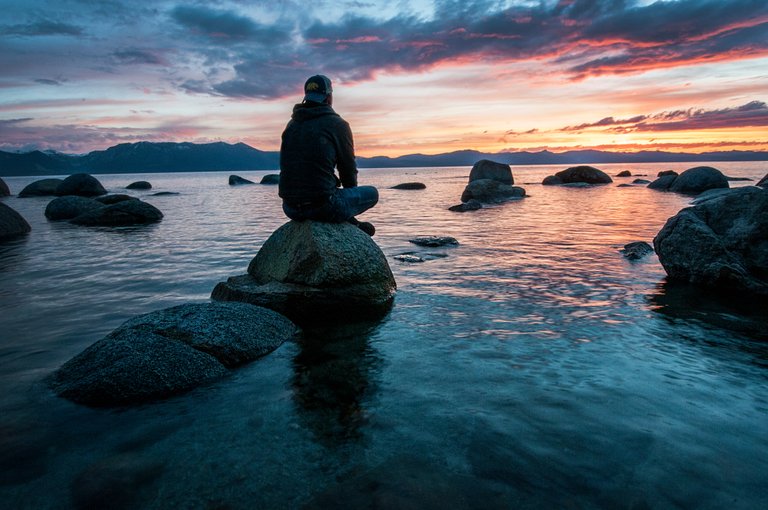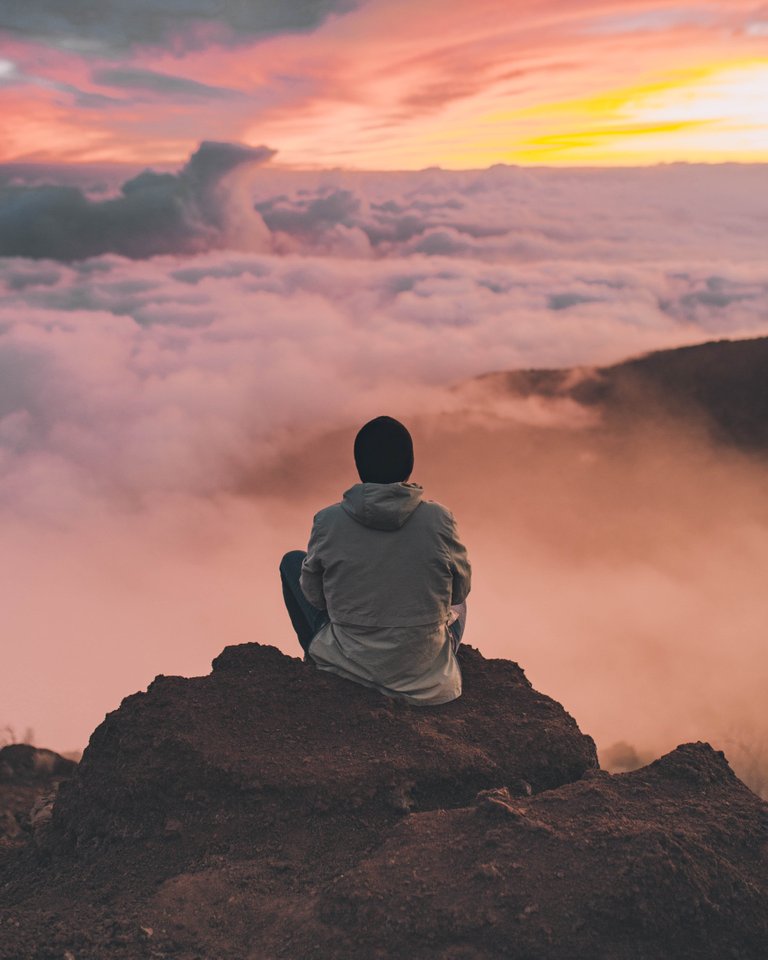The one guarantee of the future is change. Change at times can be perceived as wonderful and at other times as miserable. Life experience is full of contrast and it can be overwhelming when our plans are completely shattered by circumstance. This contrast, this duality, is necessary for human experience.
It is this duality that makes life possible. Death implies life, day implies night, man implies woman, and suffering implies happiness. Everything in nature has its polarity making it possible for individual choice and preference. This is the beauty of duality, it gives us a diversity of choices, preferences, and experiences.
Personally, I’ve always tried to have a plan for my life, but repeatedly life circumstances have forced me to adapt to change. My life, as for most human lives, has thrown me many obstacles. No path I've chosen has ever been as simple as I've mapped it out to be.
As a child I had to deal with being abused daily by a schizophrenic father, constantly moving and changing between 12 different schools, attempting to either hide from or adapt to my father's state of mind. In my early twenties, I invested a huge portion of time, and thousands of dollars of hard earned money, into starting and building a business only to have my house robbed, truck stolen, and the totality of my work destroyed.
In the past year, I thought I had finally made it when I made six-figures through cryptocurrency investments and spent my time traveling the world. Like many others, I lost the majority of the money, so I moved on to my current job working as a cook for just over minimum wage. Life has thrown me many challenges, but for each of which I am completely grateful. I have lived a life of intense highs and devastating lows, but through my experience, I have learned to find balance through any circumstance.
Five Ways I Deal With Life's Major Changes:
1) Gratitude
Yes, I understand it is a cliché, but sometimes the simple answers are the most valuable yet easily dismissed. How much time do we spend desiring what we don’t currently have? In comparison, how much time do we spend in appreciation for what we have right now?
It is far too easy to get caught up in the pursuit of gaining something more or to suffer over something lost. I find it helpful to make a habit of taking time to appreciate what I have right now, knowing that it won’t last forever. We always have something to be grateful for, even when it doesn't seem like anything is going our way.
Sometimes the most basic things are what we can be most grateful for, such as the air we breathe. Without oxygen, none of us would exist, and if all of a sudden it vanished, I'm sure most of us would realize what we were taking for granted. Often times a loss can be a great lesson, and change can be a great teacher. I try my best to look, see, and appreciate what I have, while I have it.
2) Equanimity
Finding equanimity or calmness in a difficult circumstance can be, well, difficult. What works for me in getting through these difficult situations is experiencing without attachment or aversion. This is a concept I’ve learned through meditation, to fully experience the sensations felt, while allowing them to flow and pass freely like water through a river. Every sensation and situation, whether good or bad, is temporary.
Equanimity implies taking the perspective of the observer of the mind, rather than identifying with the mind itself. Every feeling and circumstance pass through the mind, like weather, constantly changing. Nothing lasts forever, everything continuously changes regardless of our preferences toward the change.
Equanimity does not mean you become a passive observer, but quite the opposite is true. Instead of getting caught up in the labels and judgments of the mind, when in a state of equanimity, you are fully experiencing the present moment. The biggest difference is the mind is not clinging to the past, judging the present, or worrying about the future. It is pure experience.
3) Being in the Moment
The only place and time you can ever be is here and now. No matter where you go, you are always here. No matter what time it is, it is always now. You can never experience anything outside of this constant state of here and now. To judge or cling to the past, or to worry about the future, causes nothing but distractions from what is right here in front of you.
The moment is the only place we can ever find true satisfaction. If we look for happiness in the past or future, we will never find it because the past and future are just illusionary concepts of the mind. It would be like chasing a rainbow hoping to find your happiness at the end. A rainbow is just a result of weather, it comes and goes.
Being present in the moment seems as if it should be simple, but from the perspective of a Western mind, it can almost seem impossible. The fact is, we are already in the moment. All we really have to do is pay attention to the experience, without becoming attached or resistant to the circumstance, and accept it as temporary. When we get distracted, we just acknowledge that we got distracted, and come back to the experience.
4) Meditation
Meditation is a great way to bring these first three concepts into a form of practice. I have been meditating on and off for the past five years, and my state of mind is not even closely comparable to when I first started. My personal experiences with meditation have shown me things I could never comprehend apart from the experience.
We have to be aware, that when reaching these higher states of consciousness, they become past experiences that we can easily become attached to. Paradoxically, the act of being attached to these experiences is something that keeps us from them. The best way to go about meditating is to have no expectations.
Meditation helps many people in day to day life. It can be compared to tuning your brain like an instrument in order to use it harmoniously. It is not a luxury that is only available to certain groups of people, it can be easily accessed by anyone. There is no need to have any religious or spiritual beliefs in order to practice meditation.
For a beginner, the key to developing a practice is simplicity and consistency. Guided meditations on Youtube or the Headspace app are always great places to begin. Transcendental Meditation and Heartfulness Meditation are also simple techniques great for anyone.
5) Being the Change
If you don’t like what you see in other people, be what you want to see in other people. If you don’t like the circumstance you are in, create the circumstance you would like to see. If there is nothing you can do to change a situation, move on. If you can make a positive impact and improve upon the situation, then make a move.
Make time for your passions and the people you love. Pursue what makes you happy without attachment to expectations of an end goal. Enjoy the process and see where it leads. Help people however you can, because you will also be helping yourself. Change is inevitable, but our actions have a major influence.
“Be the change you wish to see in the world.” -Mahatma Gandhi



I can relate to the unexpected changes that pull the rug out from under the best plans - to climb to the heights of life dreams, just to have them dashed like a glass fallen to the floor.
And I can appreciate the meditation and reflection on releasing the hurt, the resentment and heartbreak - to seek out the smallest reasons to hold gratitude and dwelling on them. To nurture the spirit, again, that was the fire behind the striving to achieve life's wonderful and coveted feelings of success and satisfaction...
Thank you for this post. You have lifted my feet and moved me a step ahead in my journey.
Thank you for the beautiful response. I'm glad to be a part of the journey.
Dear friend join this group and get 40 to 50 upvotes daily. Guaranteed.
https://t.me/joinchat/F5AzkgzQv5FIa3Loj_1hkw